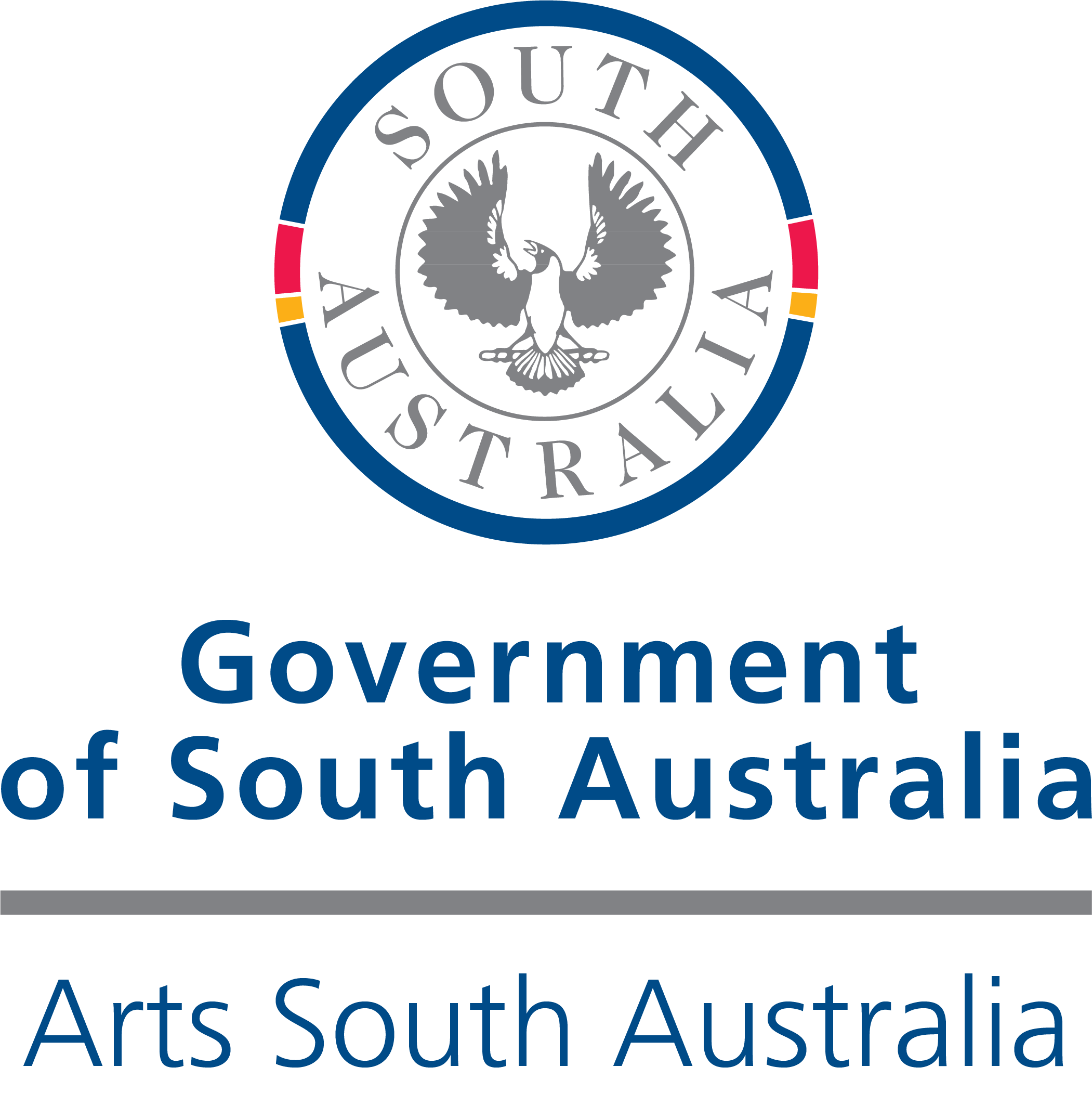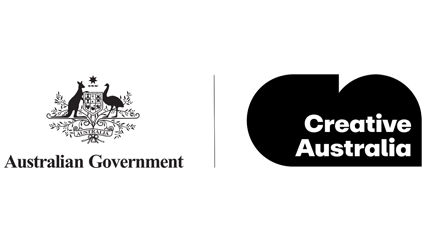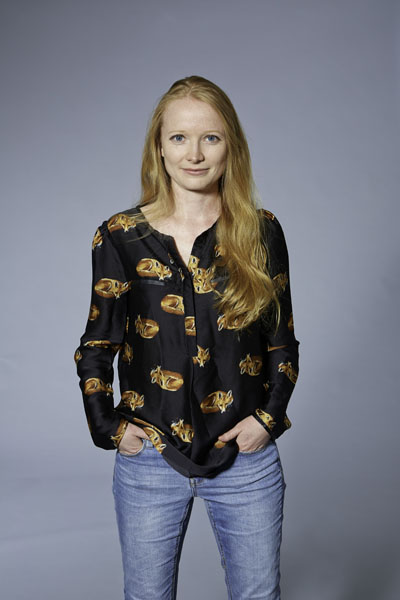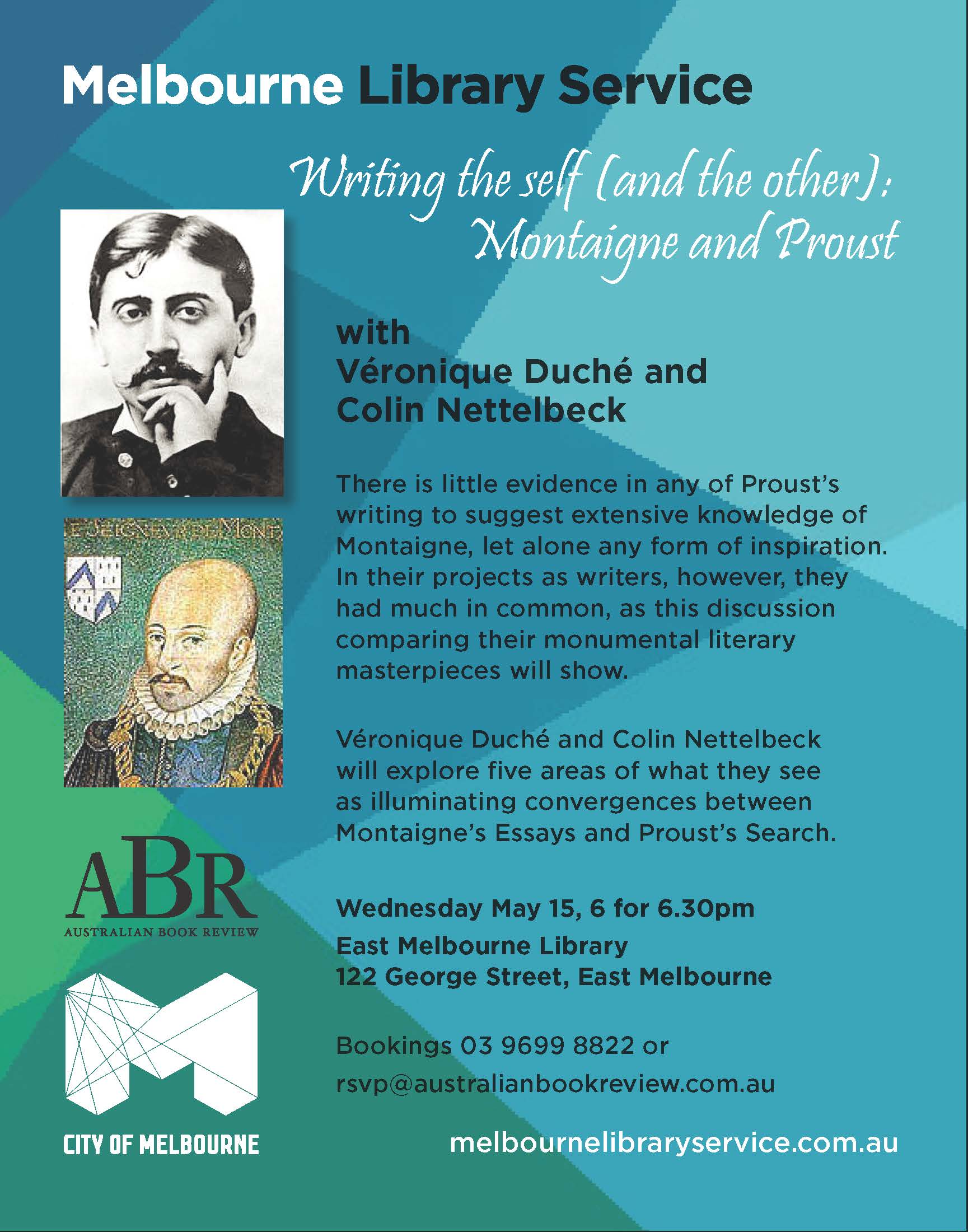Information (254)
Children categories
Thanking our Partners (14)
Australian Book Review is assisted by the Australian Government through Creative Australia, its principal arts investment and advisory body, and is also supported by the South Australian Government through Arts South Australia. We also acknowledge the generous support of our university partner, Monash University; and we are grateful for the support of the Copyright Agency Cultural Fund, Good Business Foundation (an initiative of Peter McMullin AM), the Sidney Myer Fund, Australian Communities Foundation, Sydney Community Foundation, AustLit, Readings, our travel partner Academy Travel, the City of Melbourne, and Arnold Bloch Leibler.
View items...Jolley Prize Frequently Asked Questions
I don’t live in Australia and I am not an Australian citizen. Can I still enter?
Yes, you can. Anyone can enter the Jolley Prize. But all stories must be written in English.
I’m interested in the Jolley Prize but don’t know much about it. How can I familiarise myself with the competition?
This is the fifteenth time that Australian Book Review has presented a short story prize. Past issues containing the shortlisted and winning stories are available for subscribers to read online in our online archive or to purchase in hard-copy from our online store.
Click here for more information about past winners.
What is the entry period for the 2025 Jolley Prize?
Entries for the 2025 Jolley Prize are open from 10 February 2025 to 5 May 2025. The three shortlisted stories will be published in the August or September 2025 issue and the winner will be announced later in the month of publication.
Is there a set theme or topic for the Jolley Prize?
No, stories can be on any subject and in any style.
What is the word limit for the Jolley Prize?
Stories must be between 2,000 and 5,000 words in length.
Can I submit a non-fiction story?
No, the Jolley Prize is for fiction, although entries can be inspired by real life. ABR also presents the annual Calibre Essay Prize, which is intended for non-fiction essays.
Can I enter multiple stories in one entry?
No. Separate entries must be made, and transactions paid, for each story entered into the Jolley Prize. This is to ensure that a record is kept of each story entered, and also to ensure that payment is successfully made for each.
Is there a limit to the number of stories I can enter?
No, but as stated above, each story must be entered and paid for separately, as individual entries.
Can I enter my story using a pseudonym?
Works must be entered under a real name. Internally, ABR ensures that names are not associated with essays for the judging process. Essays are strictly blind judged. Should your work be shortlisted and named, pseudonyms will not be acceptable. For publicity reasons, all shortlisted authors must be publicly named.
I have written a story with someone else. Are we eligible to enter the Jolley Prize?
No, stories entered in the Jolley must be written by one individual author.
My friend/relative has written a story, can I enter it on their behalf?
No, stories must be entered by their authors.
Are translated stories eligible for entry in the Jolley Prize?
No.
To be eligible for entry in the Jolley Prize stories must not have been previously published, what constitutes ‘publication’?
Publication includes, but is not limited to, publication in print and online (for example in a journal/magazine/anthology or on a website). Publication on a personal blog/website constitutes publication. If a story has been written and assessed as part of a writing course but has not been distributed further, that does not constitute publication.
My story was shortlisted/commended for another prize, can I enter it in the Jolley Prize?
If your story was shortlisted/commended for another prize but was not published, then it can be entered in the Jolley. Please contact us if you are unsure about eligibility.
Can I submit the work I have entered in the Jolley Prize elsewhere while I await notification?
Initially, stories may be entered in other prizes or submitted to other publications. However, if your story is longlisted in the Jolley Prize you must confirm eligibility and exclusivity – i.e. you must either withdraw it from the other outlets/prizes or withdraw it from the Jolley Prize.
When will longlisted authors be contacted?
Notification will take place in July or early August 2025. Longlisted authors who are not shortlisted will be notified in July/August and can then offer their stories elsewhere. See our Terms and Conditions for more information.
When will non-longlisted authors be notified?
Notification will take place in July or early August 2025.
When and where will the shortlisted stories be published?
The three shortlisted stories will be published in the August or September 2025 issue of ABR and on the ABR website.
What is the prize money for the 2025 Jolley Prize?
The Jolley Prize is worth a total of $12,500 (AUD). This will be split between the three shortlisted authors in the following way:
First Prize: $6,000
Second Prize: $4,000
Third Prize: $2,500
Can I pay the discounted entry fee?
Current print subscribers and yearly digital subscribers may pay the discounted entry fee of AU$20 per entry. Non-subscribers pay AU$30 per entry. If you would like a print and/or digital subscription to ABR, click here.
Alternatively you can purchase a yearly digital subscription to ABR with your entry for the combined price of AU$100. Your sign-in details will be automatically sent to you by email, and you will be entitled to enter any additional stories at the discounted rate. We also offered combined print subscriptions and Jolley Prize entry packages. A full list of entry rates appears below:
Online entry (current ABR subscriber) - $20
Online entry (standard/non subscriber) - $30*
Online entry + 1-year digital subscription - $100
Online entry + 1-year print & digital subscription (Australia) - $130
Online entry + 1-year print & digital subscription (NZ and Asia) - $220
Online entry + 1-year print & digital subscription (Rest of World) - $240
Note: Print subscribers must provide their subscriber number to be eligible for the discounted rate (this can be found on the flysheet sent out with the magazine, or on renewal notices – alternatively, This email address is being protected from spambots. You need JavaScript enabled to view it. and we will provide you with your subscriber number). Likewise, yearly digital subscribers must provide the email address with which they registered the online subscription.
Can I pay with PayPal?
At this time we are accepting credit card payments only – Visa and MasterCard. We do not accept Amex.
Will I receive confirmation of payment?
Yes, once you have submitted your online entry and payment form, you will receive a confirmation email at the email address you supplied in the form. Keep a copy for your records. If you cannot find the confirmation email, be sure to check that it has not gone to your spam or junk folders.
Can I enter by post?
No, entries must be submitted online.
Who are the judges this year?
The 2025 judges are Julie Janson, John Kinsella and Maria Takolander.
Will you give me feedback about my story?
Unfortunately, we don’t have the time or resources to comment on individual stories.
How should I format my story?
Entries should be presented in 12 pt font size. The pages of stories should be numbered. (Please note, if you realise that you have submitted your story without the preferred formatting this will not disqualify it from the Prize.) The author’s name must not appear in the body of the entry or in the name of the digital file.
What file type is acceptable?
We accept Word documents only.
Where can I find the complete Terms and Conditions of entry?
These can be found here.
How can I stay in touch with news about the Jolley Prize?
If you have provided us with a current email address we will contact you with news about the Jolley Prize. Another way to stay up-to-date with news about the Jolley Prize and other ABR prizes and events is to sign up to our online newsletters. Alternatively you can follow us on Twitter, Facebook, or Instagram.
My question isn't answered here, what should I do?
If you have a question about the Jolley Prize that isn't answered here, or in the entry guidelines, please contact us via the comments facility below and we will respond when we can.
Additional Info
-
Sponsor Logo
1-final.jpg)
- Sponsor Website http://www.abl.com.au
Additional Info
-
Sponsor Logo

- Sponsor Website http://arts.sa.gov.au/
Additional Info
-
Sponsor Logo

- Sponsor Website https://creative.gov.au/
The ABR Patrons
The ABR Patrons
ABR gratefully acknowledges the support of its Patrons
Generous donations from Patrons have transformed Australian Book Review in recent years, with major benefits for Australian writers and readers. These donations have enabled us to expand our programs, to diversify the magazine, and to be more ambitious and outward-looking. Most importantly, we have increased our payments to contributors at a time when paid freelance opportunities are relatively few. Our three literary prizes, our several Fellowships, and ABR Arts are only possible because of cultural philanthropy. With support from Patrons we look forward to preserving and improving the magazine for many years to come. In recognition of our Patrons’ continuing generosity, ABR records multiple donations cumulatively.
If you wish to discuss the ABR Patrons Program, please contact Georgina Arnott at This email address is being protected from spambots. You need JavaScript enabled to view it. or (03) 9699 8822.
_______________________________
PARNASSIAN
($100,000 or more)
Blake Beckett Fund
Ian Dickson AM
Maria Myers AC
ACMEIST
($75,000 to $99,999)
Morag Fraser AM
OLYMPIAN
($50,000 to $74,999)
Anita Apsitis OAM and Graham Anderson
Neil Kaplan CBE KC and Su Lesser
Ruth and Ralph Renard
AUGUSTAN
($25,000 to $49,999)
Australian Communities Foundation (Koshland Innovation Fund)
In memory of Kate Boyce, 1935-2020
Professor Glyn Davis AC and Professor Margaret Gardner AC
Marion Dixon
Emeritus Professor Margaret Plant OAM
Lady Potter AC CMRI
Mary-Ruth Sindrey and Peter McLennan
Emeritus Professor Andrew Taylor AM
John Scully
Anonymous (2)
IMAGIST
($15,000 to $24,999)
Emeritus Professor David Carment AM
Emeritus Professor Anne Edwards AO
Good Business Foundation (an initiative of Peter McMullin AM)
Allan Murray-Jones
David Poulton
Peter Rose and Christopher Menz
VORTICIST
($10,000 to $14,999)
Peter Allan
Gillian Appleton
Professor The Hon. Kevin Bell AM KC and Tricia Byrnes
Dr Neal Blewett AC
Helen Brack
Roslyn Follett
Jock Given
Cathrine Harboe-Ree AM
Dr Alastair Jackson AM
Linsay and John Knight
Susan Nathan
Ilana and Ray Snyder
Noel Turnbull
Susan Varga
Nicola Wass
FUTURIST
($5,000 to $9,999)
Kate Baillieu
Professor Frank Bongiorno AM
Des Cowley
Donna Curran and Patrick McCaughey
Professor The Hon. Gareth Evans AC KC
Helen Garner
Professor Emeritus Ian Gust AO (ABR Inglis Fellowship)
Dr Neil James
Dr Barbara Kamler
Kimberly Kushman McCarthy and Julian McCarthy
Pamela McLure
Dr Stephen McNamara
Don Meadows
Stephen Newton AO
Diana and Helen O'Neil
Jillian Pappas (d. 2024)
Judith Pini (honouring Agnes Helen Pini, 1939-2016)
Jill Redner (in memory of Harry Redner, 1937-2021)
Emeritus Professor Roger Rees
John Richards
Dr Trish Richardson (in memory of Andy Lloyd James, 1944-2022)
Robert Sessions AM
Emerita Professor Susan Sheridan and Emerita Professor Susan Magarey AM
Noel Turnbull
Lyn Williams AC
Ruth Wisniak OAM and Dr John Miller AO
Anonymous (3)
MODERNIST
($2,500 to $4,999)
Professor Dennis Altman AM
Paul Anderson
Helen Angus
Australian Communities Foundation (JRA Support Fund)
Judith Bishop and Petr Kuzmin
Professor Jan Carter AM
Joel Deane
Jason Drewe
Jean Dunn
Emeritus Professor Helen Ennis
Elly Fink
Professor Sheila Fitzpatrick
Professor Paul Giles
Steve Gome
Tom Griffiths
Professor Nick Haslam
Michael Henry AM
Mary Hoban
Professor Sarah Holland-Batt
Claudia Hyles OAM
Anthony Kane
Professor Marilyn Lake AO
Professor John Langmore AM
The Hon. Robyn Lansdowne
Alison Leslie
Emeritus Professor Peter McPhee AM
Patricia Nethery
Angela Nordlinger
Barbara Paterson
Mark Powell
Emeritus Professor Wilfrid Prest AM
Professor David Rolph
Professor Lynette Russell AM
Jamie Simpson
Dr Jennifer Strauss AM
Dr Diana M Thomas
Lisa Turner
Dr Helen Tyzack
Emeritus Professor Elizabeth Webby AM
Anonymous (3)
ROMANTIC
($1,000 to $2,499)
Nicole Abadee and Rob Macfarlan
Damian and Sandra Abrahams
Australian Communities Foundation
Jeffry Babb
Jean Bloomfield
Professor Kate Burridge
Dr Jill Burton
Brian Chatterton OAM
Professor Caroline de Costa
Stuart Flavell
Dilan Gunawardana
Associate Professor Michael Halliwell
Robyn Hewitt
Greg Hocking AM
The Family of Ken and Amirah Inglis (ABR Inglis Fellowship)
Associate Professor Cameron Logan and Professor Clare Monagle
Hon. Chris Maxwell AC
Dr Heather Neilson
Penelope Nelson
Professor Michael L. Ondaatje
Jane Patrick
Estate of Dorothy Porter
Professor John Poynter AO OBE
Professor Carroll Pursell and Professor Angela Woollacott
Dr Ron Radford AM
Professor Stephen Regan
Dr Della Rowley (in memory of Hazel Rowley, 1951–2011)
Dr Francesca Jurate Sasnaitis
Alan Sheardown
Michael Shmith and Christine Johnson
Alex Skovron
Susan Tracey (ABR Inglis Fellowship)
Craig Wilcox (ABR Inglis Fellowship)
Kyle Wilson
Dr Diana and Mr John Wyndham
Anonymous (1)
SYMBOLIST
($500 to $999)
Robyn Archer AO
Dr Robyn Arianrhod
Michael Clouten
Associate Professor Clare Corbould
Professor Graeme Davison AO
Emeritus Professor Rae Frances and Professor Bruce Scates (ABR Inglis Fellowship)
Dr Kerryn Goldsworthy
Professor Bill Green
Paul Hetherington
Barbara Hoad
Dr Alison Inglis AM
Professor Shirley Lindenbaum (ABR Inglis Fellowship)
Gillian Pauli
Anastasios Piperoglou
Emeritus Professor Andrew Scott
Tom Simpson
Dr Tangea Tansley
Geordie Williamson
Anonymous (ABR Inglis Fellowship)
Anonymous (3)
REALIST
($250 to $499)
Caroline Bailey
Dr Claudio Bozzi and Dr Vivien Gaston
Jan Brazier (ABR Inglis Fellowship)
Professor Nicholas Brown (ABR Inglis Fellowship)
Margaret Hollingdale
Manuell Family (ABR Inglis Fellowship)
Dr Eileen Monagle
Deborah Pike
Professor Emerita Marian Quartly (ABR Inglis Fellowship)
Matthew Schultz
Margaret Smith
Professor Alistair Thomson (ABR Inglis Fellowship)
ABR BEQUEST PROGRAM
Gillian Appleton
Ian Dickson AM
John Button (1933-2009)
Peter Corrigan AM (1941-2016)
Dr Kerryn Goldsworthy
Kimberly Kushman McCarthy and Julian McCarthy
Dr Ann Moyal (1926-2016)
Peter Rose
Francesca Jurate Sasnaitis
John Scully
Denise Smith
Anonymous (3)
Click here if you are interested in leaving a bequest.
2014 Porter Prize winner
Jessica L. Wilkinson wins 2014 Porter Prize
 Australian Book Review is delighted to announce that Jessica L. Wilkinson has won the 2014 ABR Peter Porter Poetry Prize for her poem ‘Arrival Platform Humlet’. Jessica receives $4,000 for her winning poem, which was drawn from a field of just under 700 entries.
Australian Book Review is delighted to announce that Jessica L. Wilkinson has won the 2014 ABR Peter Porter Poetry Prize for her poem ‘Arrival Platform Humlet’. Jessica receives $4,000 for her winning poem, which was drawn from a field of just under 700 entries.
Elizabeth Allen, Nathan Curnow, and Paul Kane were also shortlisted, with each poet receiving $833 for their shortlisted poems (‘Absence’, ‘Scenes from the Olivet Discourse’ and ‘VFGA.’ respectively).
The judges were Lisa Gorton and Felicity Plunkett.
‘I am truly honoured that my poem ‘‘Arrival Platform Humlet’’ was recognised in this way and very privileged to be associated with the good name of Peter Porter.’
Jessica L. Wilkinson
Judges' report
‘Judging this prize was difficult, if rewarding, because the number of poems that demanded serious consideration. The judges longlisted more than thirty. After much consideration, we shortlisted four of them. They showed a thoughtful and inventive approach to the traditions that they were drawing on, and achieved a distinctive and memorable poetic vision.’
Lisa Gorton and Felicity Plunkett
ABR gratefully acknowledges the support of Morag Fraser AM
Proust and Montaigne
Proust and Montaigne – Writing the Self, May 15 at 6.p.m

Francophiles, essayists, and Proustians will not want to miss a joint ABR and Melbourne Library Services event to be held in the East Melbourne Library on Wednesday, 15 May (6 p.m.). Noted French scholars and enthusiasts Véronique Duché and Colin Nettelbeck (who reviews Camus’s Algerian Chronicles for us in the May issue) will be in discussion about Montaigne and Proust, with particular references to convergences in their remarkable works. This is a free event, but reservations are essential: This email address is being protected from spambots. You need JavaScript enabled to view it..
Please note this event is now booked out.
Additional Info
-
Sponsor Logo

- Sponsor Website http://www.creativespaces.net.au
Additional Info
-
Sponsor Logo

- Sponsor Website http://www.copyright.com.au
Subscribe to ABR
Subscribe to ABR
Join the ABR community. We offer a range of subscriptions tailored for individuals and institutions, print readers and online users.
If you are having trouble subscribing, contact us on (03) 9699 8822 or This email address is being protected from spambots. You need JavaScript enabled to view it.
Digital
Subscribe for as little as $10 per month and receive complete digital access to ABR.
Print + Digital
Subscribe and receive 11 print issues per year as well as complete digital access to ABR.
ABR Arts
Subscribe and receive complete digital access to ABR Arts.
Take Two
Purchase a combined print + digital subscription to ABR and one other Australian literary magazine, including: Overland, Island Magazine, Limelight, Griffith Review, and Westerly Magazine.
Gift subscriptions to ABR
Purchase a full print and/or digital subscription to ABR as a gift for someone.
Purchase single issues
Purchase a single print issue of ABR.
Institutions
Purchase an institutional subscription for your university and/or library.
Universities, government auspices and institutions must contact ABR to set up online access:
This email address is being protected from spambots. You need JavaScript enabled to view it. or call +61 3 9699 8822.
Only individual subscribers are eligible to add a digital subscription to their print subscription free of charge. ABR digital subscribers are subject to our Terms and Conditions of Use.
All small institutions, including schools and municipal libraries, can purchase a one-year digital subscription for $150. However, for university libraries, government auspices and departments, national and state libraries and their international counterparts (in terms of status and reach) a one-year digital subscription to ABR costs $550.
To organise an institutional digital subscription please contact ABR by This email address is being protected from spambots. You need JavaScript enabled to view it. or by phone: +61 3 9699 8822. One-month trials can be arranged on request.
Please click here for more information about institutional subscriptions to Australian Book Review.


